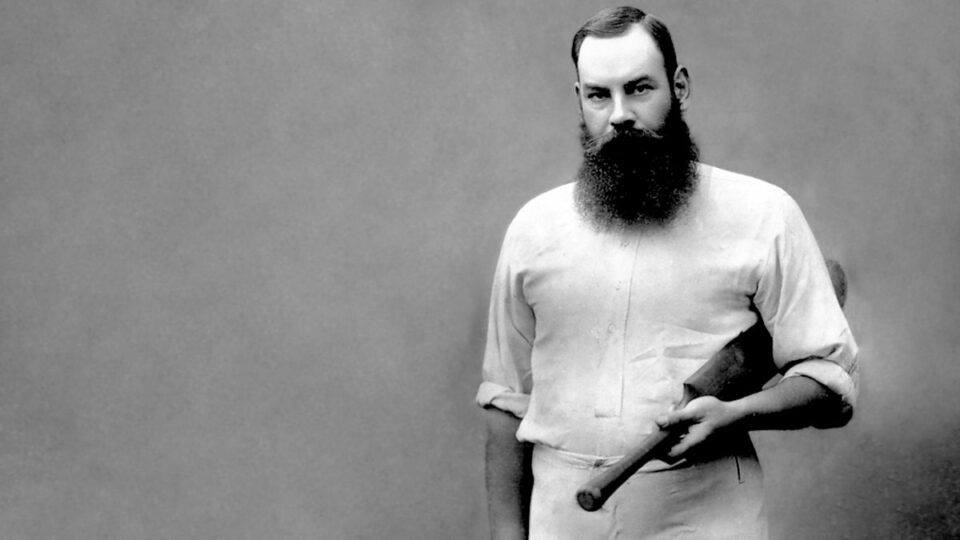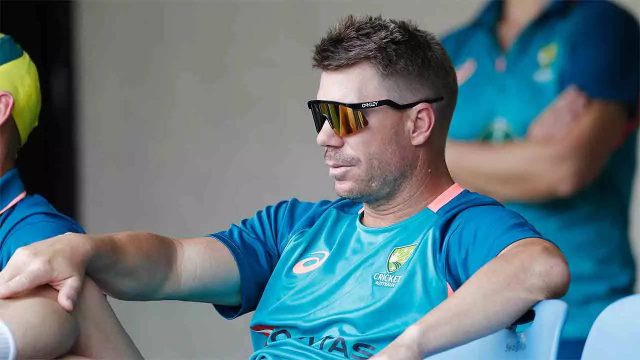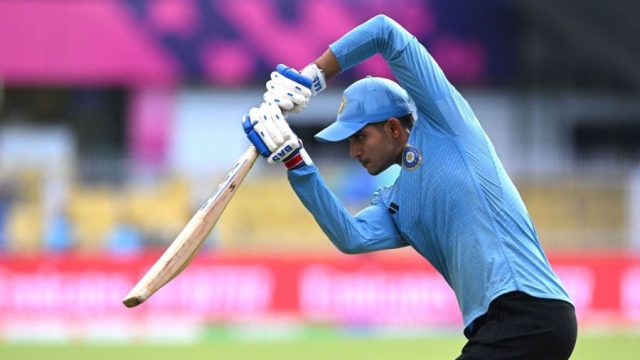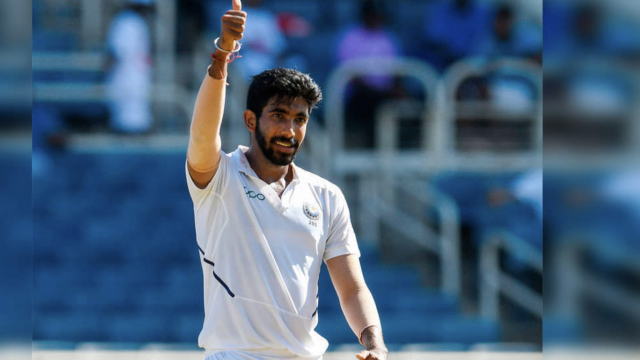Who Is The Father Of Cricket?

Who is the father of cricket? While there have been several contenders for this title, none are more deserving than W.G. Grace. Born in 1848, Grace was an English cricketer who is widely regarded as one of the greatest batsman in the sport’s history. His first class cricket career spanned more than three decades, during which time he developed many innovative techniques with a cricket bat as well as strategies that are still in use today, and he was never one to give up his wicket cheaply.
However, Grace’s contributions to English cricket go far beyond his skill as a player. He was a tireless advocate for the sport, helping to popularize it among the public and working to establish the rules and structures that would guide its development in the future. As a result, Grace played an instrumental role in shaping cricket into the game that it is today.
While other individuals such as Australian Don Bradman and Indian cricket legend Sachin Tendulkar have also been called the “father of cricket,” this article will argue that Grace’s contributions outweigh those of other contenders, making him the most deserving of the title.
Who was W.G. Grace?
W.G. Grace was an English cricketer who lived from 1848 to 1915. He is widely regarded as one of the greatest players in the history of the sport. Grace was born in Bristol, England, and began playing cricket at a young age. He quickly demonstrated an extraordinary talent for the game, and by his early twenties, he was playing at the highest level of competition.
Grace’s playing career spanned more than three decades, during which time he achieved numerous impressive accomplishments. He was known for his distinctive style of play, which involved a mix of aggressive and defensive strokes. He also developed several innovative techniques and strategies that revolutionized the game of cricket.
Throughout his career, Grace played in a wide variety of matches, including international matches between England and other nations. He was known for his exceptional leadership skills, and he often captained the teams he played on. Grace also wrote extensively about cricket, producing several influential books on the sport.
Off the field, Grace was a prominent figure in the cricketing world. He worked tirelessly to promote the sport and to establish the rules and structures that would guide its development in the future. He also played a key role in the founding of several cricket clubs and organizations.
Today, Grace’s legacy is still felt in the world of cricket. His skill as a player and his leadership and advocacy for the sport helped to shape cricket into the game that it is today. He remains one of the most beloved figures in the sport’s history, and his contributions to cricket continue to be celebrated by fans and players alike.
W.G. Grace’s Contributions to Cricket
W.G. Grace left an indelible mark on the sport of cricket, and his contributions are still felt today. He had a multifaceted impact on the game, including his skill as a player, his innovations in technique and strategy, and his advocacy for the game’s growth and popularity.
Skill as a Player
Grace was widely recognized as one of the most skilled and versatile cricketers of his time. He had a distinctive style of play that combined aggression and defensiveness, and he was known for his ability to adapt to different playing conditions. Grace was also an exceptional fielder, and his athleticism helped him make some of the most memorable catches in cricket history.
Innovations in Technique and Strategy
Grace was a true innovator when it came to cricket technique and strategy. He was one of the first players to employ a wide range of strokes, and he was known for his ability to play both defensively and offensively as needed. Grace also pioneered several new techniques, including the forward defensive stroke, which is still used by players today. He was also one of the first cricketers to use a straight bat, which has become a hallmark of the modern game.
Advocacy for the Game’s Growth and Popularity
Grace was not only a great player, but also a tireless advocate for the growth and popularity of the sport. He played a key role in establishing the rules and structures that guide the game of cricket today, and he was instrumental in the founding of several cricket clubs and organizations. Grace also worked to promote the sport among the general public, giving lectures and demonstrations to help raise awareness of the game.
Overall, W.G. Grace’s contributions to cricket were wide-ranging and profound. His skill as a player, his innovations in technique and strategy, and his advocacy for the game’s growth and popularity helped to shape cricket into the sport that we know today. Grace remains a beloved figure in the cricketing world, and his legacy is still felt by players and fans alike.
Why W.G. Grace Deserves the Title of “Father of Cricket”
W.G. Grace’s contributions to the sport of cricket were so significant that he deserves to be considered the “father of cricket.” His innovations and leadership helped to shape the game into the sport that we know and love today.
Revolutionary Techniques and Strategies
Grace’s innovative techniques and strategies revolutionized the sport of cricket. He was one of the first players to employ a wide range of strokes, including the forward defensive stroke, which is still used by players today. He was also one of the first cricketers to use a straight bat, which has become a hallmark of the modern game. Grace’s approach to the game was both aggressive and defensive, and he was known for his ability to adapt to different playing conditions. He was a true pioneer of the sport and his innovations continue to influence cricket to this day.
Longevity and Consistency
Grace’s longevity and consistency as a player were also remarkable. He played for over three decades and remained one of the sport’s best players throughout his career. He was known for his exceptional leadership skills and often captained the teams he played on. He also wrote extensively about cricket, producing several influential books on the sport. Grace’s passion for cricket was evident in all aspects of his life, and his dedication helped to make the sport what it is today.
Advocacy for the Sport
In addition to his on-field contributions, Grace was also a tireless advocate for the sport. He worked to promote the game among the general public, giving lectures and demonstrations to help raise awareness of the sport. He played a key role in establishing the rules and structures that guide the game of cricket today, and he was instrumental in the founding of several cricket clubs and organizations.
Legacy and Influence
Grace’s impact on cricket has endured long after his playing career ended. His innovations and leadership helped to shape the sport into the game that we know today. He remains one of the most beloved figures in the sport’s history, and his contributions to cricket continue to be celebrated by fans and players alike.
W.G. Grace’s contributions to the sport of cricket were so significant that he deserves to be considered the “father of cricket.” His innovative techniques and strategies, his longevity and consistency as a player, and his advocacy for the sport helped to shape cricket into the game that we know and love today. Grace’s legacy has endured for over a century and his influence on the sport will continue to be felt for generations to come.
Other Contenders for the ‘Father of Cricket’ Title
While W.G. Grace is widely considered the “father of cricket,” other individuals have also been called contenders for the title. One such individual is Henry Chadwick, an American journalist who is often credited with popularizing the sport in the United States.
Henry Chadwick’s Contributions
Chadwick was a prolific writer who covered a wide range of sports, including cricket. He played a key role in developing the modern scoring system for the sport, and he was a strong advocate for the use of statistical analysis in cricket. Chadwick’s contributions helped to promote the sport and make it more accessible to a wider audience.
Why Grace Deserves the Title
While Chadwick’s contributions to cricket were significant, they pale in comparison to those of W.G. Grace. Grace was not only a great player, but also a true pioneer of the sport. His innovations and leadership helped to shape cricket into the game we know today, and his influence on the sport is still felt more than a century after his playing career ended.
Grace’s longevity and consistency as a player were remarkable, and his innovative techniques and strategies revolutionized the sport. He was also a tireless advocate for cricket, promoting the game among the general public and working to establish the rules and structures that guide the sport today.
Moreover, Grace’s impact on the sport extended beyond his playing career. He continued to write and speak about cricket, and his passion for the sport inspired countless others to take up the game. His legacy has endured for over a century, and his influence on the sport will continue to be felt for generations to come.
While other individuals, such as Henry Chadwick, have also been called the “father of cricket,” it is clear that W.G. Grace’s contributions to the sport outweigh those of any other contender. Grace was a true pioneer of the sport, whose innovative techniques and strategies, longevity and consistency as a player, and tireless advocacy for the sport helped to shape cricket into the game we know and love today.
What was WG Grace famous for?
WG Grace was a famous English cricketer who played in the late 19th and early 20th centuries. He was known for his exceptional skills as a player, as well as his contributions to the development and growth of the sport.
As a player, Grace was known for his versatile batting style, which allowed him to score runs consistently in a variety of situations. He also developed a range of innovative techniques, such as the “forward defensive” shot, which are still used by players today.
In addition to his prowess on the field, Grace was also a prominent figure in the development of the sport of cricket. He was instrumental in the formation of the County Championship, which is still the premier domestic cricket competition in England. He also helped to popularize the sport through his numerous public appearances and demonstrations.
Grace’s fame extended beyond the cricketing world, as he was also a medical doctor and a member of the British parliament.
W.G. Grace was a true all-rounder, excelling in both batting and bowling during his 43-year first-class cricket career. He took almost 3,000 wickets and scored over 50,000 runs, making him one of the most prolific and versatile cricketers of his time. His impact on the game was such that he completely transformed the standard of scoring, making centuries and even half-centuries more commonplace.
Grace’s most remarkable achievement came in 1895 when, at the age of 46, he scored an astonishing 1,000 runs in just one month – a feat that has never been repeated. This incredible accomplishment cemented his status as one of the greatest batsmen of all time.
Beyond his skill on the pitch, Grace was also known for his distinctive appearance and larger-than-life personality. Nicknamed “The Doctor,” “The Old Man,” or simply “WG,” he was instantly recognizable on and off the field. His towering figure, strong features, and full black beard made him a commanding presence, and his exceptional talent with the bat was made all the more impressive by his physical stature.
In many ways, Grace’s contributions to cricket were so significant that he transcended the sport, becoming a cultural icon and national hero. His legacy lives on, both in the record books and in the enduring impact he had on the game and its evolution over time.
Who did WG Grace play cricket for?
WG Grace played cricket for 28 teams over the course of his long and illustrious career. He began his first-class career in 1865, playing for the Gentlemen of the South and then for the Gentlemen of England. In 1866, he joined the Marylebone Cricket Club (MCC), which remains one of the most prestigious teams in the world of cricket. He continued to play for the MCC for many years, captaining the team in 1881 and 1885.
Grace also played for the Gloucestershire County Cricket Club, representing the county of his birth for nearly four decades. He made his debut for Gloucestershire in 1867 and remained with the team for the rest of his career, playing his final match in 1908 at the age of 60.
In addition to these teams, Grace played for several other sides, including London County, which he helped found in 1900. He also played for England in 22 Test matches, serving as captain for two of those matches in 1896. Throughout his career, Grace remained one of the most sought-after players in the world of cricket, and his contributions to the sport continue to be celebrated to this day.
Which team did WG Grace captain?
WG Grace captained the Marylebone Cricket Club (MCC) team in two different years, 1881 and 1885. The MCC is one of the oldest and most prestigious cricket clubs in the world and is responsible for governing the laws of cricket. Grace was a prominent member of the MCC for many years and played for the team in numerous matches, both in England and around the world.
In addition to his captaincy of the MCC team, Grace also served as captain of several other teams throughout his career, including Gloucestershire County Cricket Club, which he represented for almost 40 years. He was known for his leadership skills and his ability to motivate his teammates to perform at their best.
Did WG Grace play Australia?
WG Grace played against Australia in a number of matches during his career. However, as Test cricket had not yet been established, these matches were not considered official Test matches. Instead, they were played as part of Australia’s tours of England, in which the Australian national team played matches against various English teams.
Grace played against Australia in a number of these matches, including the 1878 tour when he was the captain of the Gloucestershire team that played against the Australians. He also played against Australia in matches representing other teams, such as the Gentlemen of England and the South of England.
These matches were highly competitive, and Grace was known for his fierce determination and skill as a cricketer. His performances against Australia helped to establish his reputation as one of the greatest cricketers of his time and contributed to the growth of the sport in both England and Australia.
Who is the Indian father of cricket?
There is no widely recognized Indian “father of cricket” in the same way that W.G. Grace is considered the “father of cricket” in England. However, there have been many individuals who have made significant contributions to the development and growth of cricket in India.
One such individual is Ranjitsinhji, also known as “Ranji,” who was a prominent cricket player in the late 19th and early 20th centuries. He was the first Indian to play cricket for England, and his innovative batting style and impressive record on the field helped to popularize the sport in India.
Other notable figures in Indian cricket history include C.K. Nayudu, who was the captain of India’s first Test cricket team in 1932, and Lala Amarnath, who was the first Indian to score a Test century. In more recent times, players such as Sachin Tendulkar and Virat Kohli have helped to raise the profile of cricket in India and inspire future generations of players.
While there may not be a single individual who can claim the title of “father of cricket” in India, the country’s rich history and ongoing passion for the sport are a testament to the many individuals who have contributed to its development and growth.
Who is the inventor of cricket?
There is no single person who can be credited with inventing the sport of cricket. The origins of cricket can be traced back several hundred years to England, where it was played as a rural pastime in the 16th century. Over time, the game evolved and became more organized, with rules and structures that have been refined and standardized over the centuries.
One of the earliest recorded instances of cricket being played in a formalized setting was in 1709, when a match was played between teams from the villages of Kent and Surrey. From there, the popularity of the sport continued to grow, and it eventually spread to other parts of the world through colonization and trade.
While there is no one person who can be credited with inventing cricket, there have been many individuals who have made significant contributions to its development and growth over the centuries. Some of these individuals, such as W.G. Grace in England and Don Bradman in Australia, have become iconic figures in the sport’s history, but they did not invent the game. Instead, they built upon the foundations established by earlier generations of players and helped to shape the sport into the game we know today.
Who is the bible of cricket?
“The Bible of Cricket” is a nickname given to the Wisden Cricketers’ Almanack, an annual publication that has been providing coverage of the sport since 1864. The nickname was first coined by Australian cricketer Victor Trumper in the early 20th century, and it has since become a widely recognized moniker for the publication.
The Wisden Cricketers’ Almanack is known for its comprehensive coverage of the sport, with detailed statistics, match reports, and analysis of players and teams from around the world. It also includes feature articles, opinion pieces, and obituaries of prominent figures in the cricketing world.
In addition to its coverage of the sport, the Wisden Cricketers’ Almanack is also known for its distinctive yellow cover, which has become an iconic symbol of the publication. The cover features a drawing of a cricket field, with the words “Wisden Cricketers’ Almanack” printed in bold letters at the top.
Over the years, the Wisden Cricketers’ Almanack has become an important part of cricketing history, with many players and fans considering it to be the definitive source of information on the sport. Its nickname, “The Bible of Cricket,” is a testament to its enduring influence and importance in the world of cricket.
Who is the father of cricket? – Key Takeaways
In conclusion, W.G. Grace’s contributions to cricket were so significant that he truly deserves the title of “father of cricket.” His skill as a player, innovations in technique and strategy, and tireless advocacy for the game’s growth and popularity make him an undisputed pioneer of the sport.
Key takeaways from this article include:
- Grace’s longevity and consistency as a player were remarkable, and his innovative techniques and strategies revolutionized the sport.
- Grace was a tireless advocate for cricket, promoting the game among the general public and working to establish the rules and structures that guide the sport today.
- Grace’s impact on the sport extended beyond his playing career. His legacy has endured for over a century, and his influence on the sport will continue to be felt for generations to come.
In recognizing Grace’s contributions, we not only honor his legacy, but also acknowledge the importance of innovation, leadership, and advocacy in shaping the future of cricket. As the sport continues to evolve, we can look to Grace’s example as a guide for how to push the boundaries of what is possible and make cricket a more accessible, inclusive, and exciting game for all.
Who is the father of cricket? – FAQs
Q: Was WG Grace the only person who contributed to the development of cricket?
A: No, WG Grace was not the only person who contributed to the development of cricket. There were many other individuals who played a role in shaping the sport, including Henry Chadwick, who has also been called the “father of cricket.”
Q: Why is WG Grace considered the “father of cricket”?
A: WG Grace is considered the “father of cricket” due to his significant contributions to the sport over the course of his long career. He was a skilled player, an innovative thinker, and a passionate advocate for the game, and his influence helped to shape cricket into the sport we know today. In more modern times Sir Donald Bradman has also been in the discussion, but WG Grace is the enduring name.
Q: How many wickets did WG Grace take in his career?
A: WG Grace took nearly 3,000 wickets during his career of 43 years in first-class cricket. This impressive record is a testament to his skill as an all-rounder.
Q: What was WG Grace’s most remarkable achievement?
A: Perhaps WG Grace’s most remarkable achievement came in 1895 when, at the age of 46, he scored 1,000 runs in the month of May. This incredible feat cemented his reputation as one of the greatest cricketers of his time and wouldn’t be out of place in T20 cricket today.
Q: Did WG Grace play against Australia?
A: Yes, W G Grace played against Australia in a number of international cricket matches during his career. However, as Test cricket had not yet been established, these matches were not considered official Test matches.
Q: What is WG Grace’s enduring legacy?
A: WG Grace’s enduring legacy is his lasting impact on the sport of cricket. His innovations in technique and strategy, his skill as a player, and his advocacy for the game’s growth and popularity all helped to establish cricket as one of the most beloved sports in the world.





